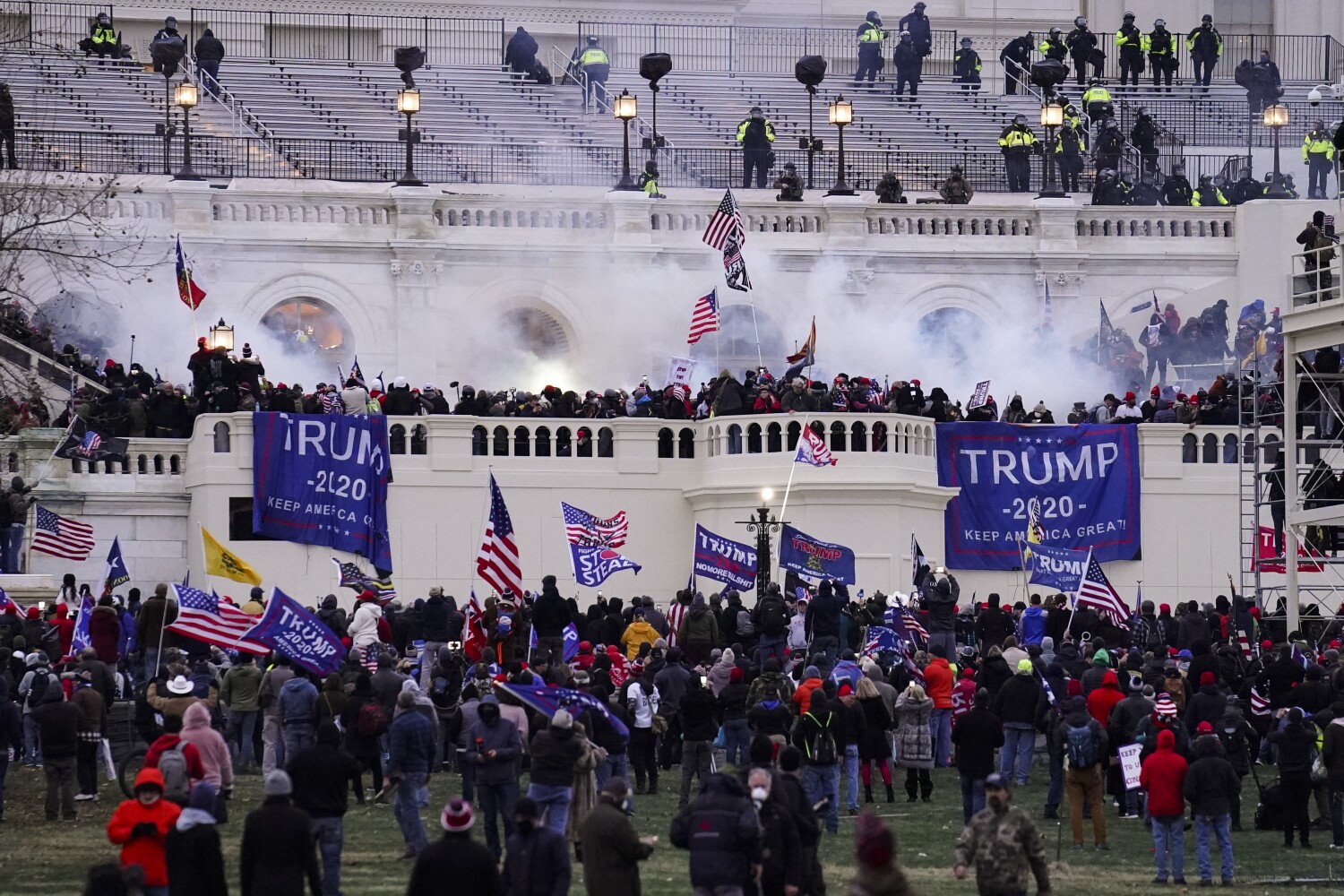[ad_1]

Let’s be clear: The paroxysm of white supremacist anger that swept through the U.S. Capitol on Jan. 6 — breaking things, including American democracy — was the raw physical expression of the larger phenomenon of white supremacy that I and many other Black writers, scholars and activists have been exposing for decades. That single extreme event is just part of a spectrum of racism, with every point on the scale dangerous and incendiary in its own right — the rejection of affirmative action, the increased segregation of public schools, three-strikes laws, the evisceration of the Voting Rights Act, gentrification, the birther conspiracy, unabated police shootings of Black people.
More troubling to me than the insurrection of Jan. 6 is how so many conscientious white people — my friends, editors, readers — never understood white supremacy as a whole. Over the years they accommodated my opinions just fine but didn’t really absorb them or take them to heart. White supremacy might be a moral issue, encoded in things like affirmative action, but that’s the problem: It was an issue, an abstraction. On a day-to-day level it didn’t endanger them, therefore it didn’t endanger the country.
They were wrong. We have all witnessed white supremacy in action now; we have seen how it is animated by anger. White anger is the root of racism, supremacy, privilege and entitlement — the volatile spark that has always been capable of blowing all the abstractions out of the water and revealing what’s really going on: We as a country are sick, and too many among us want to be sick.
Of course many of us are appalled at this sickness. Many white people have roundly condemned the lawlessness and unprovoked violence at the Capitol. Thanks to the nascent anti-racism movement, more than a few have condemned white supremacy and specious comparisons of the insurrection to racial justice protests that swept the country in 2020. If there’s a silver lining to our horror show, it’s that white people have a new, clearer lens through which to view things, and they are using it.
But that is not enough. What the newly minted anti-racists need to grasp — now — is that the Jan. 6 riot was not against Black people or immigrants or “minorities”: It was white people against other white people who don’t embrace white anger as robustly and obviously as they’re supposed to. These insufficiently angry white people are the group the right wing labels “liberal elite.” (In another age, they would call them by a term this newspaper won’t print.) Despite the elite’s frequently tepid embrace of racial justice, white supremacists and their fellow travelers consider liberals traitors to the American condition of white entitlement (a condition, by the way, that the MAGA mob sees as a measure of our national health, not our sickness.)
In particular, Democrats — notably white Democrats who aid and abet Black Lives Matter, the great ideological bogeyman of the white anger movement — are traitors. That status also extends to anyone not in thrall to Donald Trump, for four years the angry-white-man in chief who abhors not just BLM but also racial justice in general, or justice period. This cult-leader logic is why Vice President Mike Pence and Senate Majority Leader Mitch McConnell, unrepentant conservatives who nonetheless refused to side with insurrection, are targeted along with Democratic Speaker Nancy Pelosi and Rep. Alexandria Ocasio-Cortez.
I hope the anti-racist awakening of last year makes it easier for white people to embrace a bedrock truth that people of color have known forever: White Americans are a tribe. They are bound by common principles and beliefs about their own supremacy. And those who openly espouse these beliefs are more economically, educationally and culturally diverse than anyone cares to imagine. Entitlement has always united white folks across the board, and in 2021 it united a whole range of malcontents — Confederacy sympathizers, QAnon-ers, anti-vaxxers, anti-maskers. The Trump rally and riot in Washington featured not just yahoos in fur headdresses, but professional people, first responders, county commissioners, a state delegate, a constitutional law scholar from Southern California, grandmothers, suburbanites.
And it featured government itself. After the sacking of the Capitol, in the most spectacular and unsettling display of white entitlement so far, a majority of Republicans in the House refused to stand down from their support of a rabid, unfounded assertion that the 2020 election was stolen from Trump and “the people.” Whether these lawmakers acted out of conviction or political expedience doesn’t matter. What matters — and what may sink the republic for good — is the willingness at the highest levels in Washington to embrace naked white anger as fundamentally legitimate.
How do we walk this back or walk it forward? I recall the enormous optimism about the prospect of change and racial cooperation that powered Barack Obama’s presidential campaign in 2008. I always thought that Obama was naive, too willing to ignore the white anger that ultimately made him the most intensely hated president in modern history, a hatred that led directly to Trump and to this moment in which American democracy hangs by a thin thread. But that optimism, the hope for change, was also incredibly powerful and real.
It is still out there. Now, at last, we all know exactly what it’s up against.
Erin Aubry Kaplan is a contributing writer to Opinion.
[ad_2]
Source link